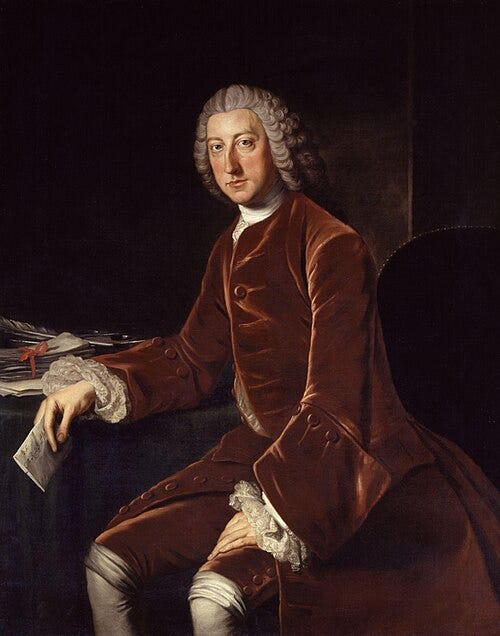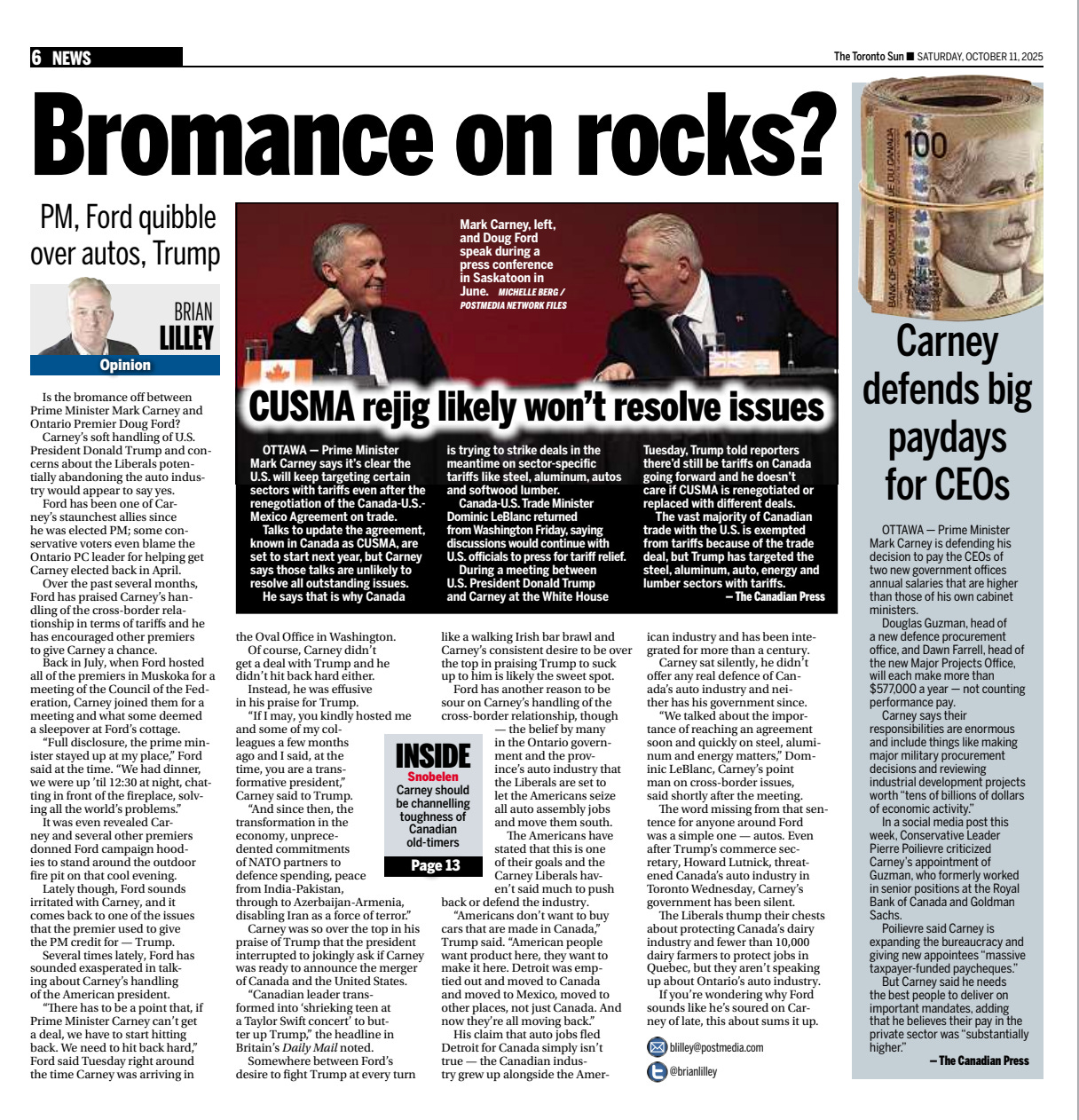Mark Carney's authoritarian tendency gets push back...
Government walks away from C-2 for now, C-9 concerns and is he breaking up with Doug Ford?
Should police be able to open your mail or force your doctor, pharmacist or therapist to hand over information on you without a warrant? The answer is of course not, but the Carney Liberals did try to push that through in Bill C-2 and while they’ve introduced a new bill, they haven’t walked away from these bad ideas.
Opposition to Bill C-2 was so great that it had no chance of passing, so they introduced Bill C-12. It’s a stripped down version of C-2 that takes out the most problematic sections that deal with what police and the government call “lawful access” and what most of us would call a warrantless search.
The idea that the police or a government agent needs permission for any kind of search on you is ancient. It pre-dates the Charter, it pre-dates Diefenbaker’s Bill of Rights, it comes to us through centuries of Common Law.
Standing in Westminster to denounce illegal searches that were happening in relation to riots over an increase in the tax on cider, William Pitt, 1st Earl of Chatham stood and summed up the limits of government search very well.
“The poorest man may in his cottage, bid defiance to all the forces of the Crown. It may be frail, its roof may shake; the wind may blow through it; the storm may enter; the rain may enter; but the King of England may not enter; all his force dares not cross the threshold of the ruined tenement.”
Those sentiments still apply today and they still apply to modern means of communication, be it your cellphone, your computer. It applies to your relationship with your doctor or any other service provider.
Bill C-2 is a massive example of government overreach and the powers contained in it should not be passed.
So, while the good news is that the government has taken them out of the new bill, C-2 remains on the books and Public Safety Minister Gary Anandasanagaree still wants them passed in some form or another.
“I’m willing to do the work with law enforcement, with civil-society folks, to build consensus,” he told reporters. “We need to do work on C-2.”
This is a reprieve, this is not the government admitting they were wrong and promising not to do it again.
Speaking of government surveillance…
Maybe you’ve heard that in Britain people can be arrested, charged and jail for Facebook or X posts that offend people. Not talking hate speech laws, we are talking offensive posts.
There are real concerns that this could come to Canada will Bill C-9, the Combatting Hate Act.
Combatting hate, legally speaking, is always going to be difficult because hate is an emotion, it can be subjective, it can be difficult to define. In Bill C-9, the government is proposing to insert a definition of hate into the Criminal Code that isn’t quite as robust as it should be.
In reading the text, you can see that the government is trying to ensure that people are not charged for simply being offensive, but with this definition, and the tendency for bureaucratic overreach, I have my concerns.
Here is the section of the legislation that covers both the definition of hate and their attempt to ensure mean tweets don’t result in charges or conviction.
Clarification
(6) For greater certainty, the communication of a statement does not incite or promote hatred, for the purposes of this section, solely because it discredits, humiliates, hurts or offends.
(3) Subsection 319(7) of the Act is amended by adding the following in alphabetical order:
hatred means the emotion that involves detestation or vilification and that is stronger than disdain or dislike; (haine)
Just those two sections should give us some comfort, but also some pause for concern.
There are some good parts of this legislation, there are some worrisome parts. The devil as they say is in the details and when it comes to matters like this, the implementation.
I’d encourage all MPs involved to tread carefully, read carefully, amend the legislation for clarification judiciously and when in doubt regarding a clause and its impact - leave it out.
Bromance on the rocks…
We’ve all heard about the bromance between Prime Minister Mark Carney and Ontario Premier Doug Ford. They’ve been staunch allies since Carney was elected and Ford has backed the PM in his stance against Donald Trump and his tariffs.
If you have been feeling like this is coming apart, that’s because it is.
I wrote about this for the Toronto Sun this week, you can read the column here and check out the print edition below, but to understand why they are on the rocks, back up a little bit.
Carney was in Washington this week and wasn’t saying much about the auto industry. In fact, as I point out in a previous column, Ford and his team, along with many in the auto industry are worried that the Carney government is set to walk away from the auto industry.
This isn’t out of malice, it just appears they feel they are beaten when it comes to Trump’s demand that auto assembly happen in the United States. Howard Lutnick hammered home that point at a Toronto convention this week and the people I’ve been hearing from say it is a constant refrain in Washington.
Check out this tidbit from Wednesday’s column.
According to one well-placed source, federal officials have already drafted legislation to take us back to the pre-Auto Pact days where there are stiff tariffs for any company that does not have a manufacturing footprint in Canada.
Why would they be doing that unless they were ready to surrender.
Maybe Carney is getting bad advice, maybe he doesn’t know what else can be done, but it really does appear that his team will leave auto dangling at best. When you do that, you can’t expect to have a good relationship with the Premier of Ontario, regardless of who holds that office.





The Liberal's relentless assault on our freedoms - in particular, freedom of speech - is the worst crime ever attempted on Canadians.
Without that freedom, all others are rendered moot.
Looking at what is happening to free speech in the UK, it’s like the canary in the coal mine. Canadians should be very concerned about Canada following the UK on speech laws.